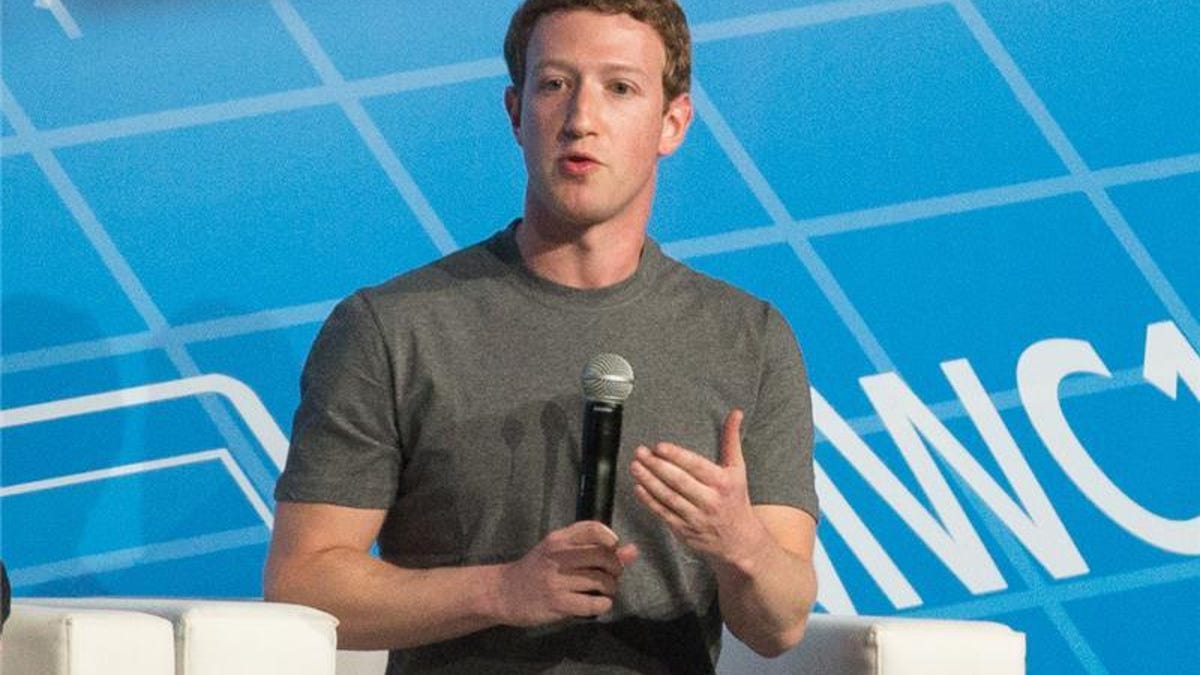Zuckerberg: In case of Internet emergency, dial Facebook
The Facebook chief tells carriers that his social network can act as a gateway drug for Internet data plans.

Facebook Chief Executive Mark Zuckerberg on Monday pitched his Internet-for-everyone initiative to skeptics and carriers alike, at the Mobile World Congress in Barcelona, as a type of 911-like help line for people without a connection to broadband.
Established in August of 2013, Internet.org is a coalition of mobile technology companies, spearheaded by Facebook, that are working to bring Internet (and Facebook) access to the 5 billion or so people without it.
Zuckerberg, during a keynote interview with "The Facebook Effect" author David Kirkpatrick, explained his grandiose mission with a little more detail. Internet.org, he said, is meant to be similar to a dial tone for the Internet, providing a set of basic services such as messaging, weather, food prices, Wikipedia, and Facebook, of course, to anyone regardless of whether they pay for a data connection.
CNET's full coverage of Mobile World Congress
The most expensive part about owning a smartphone is not the phone, but the data connection, Zuckerberg said, adding that the only way to sell Internet access to those who've never had it is to show them what they're missing.
Though employing altruistic mantras like Internet.org being good for the world and about delivering a more efficient Internet for everyone, Zuckerberg made it a point to spell out that these basic services are merely intended to be an "on ramp to the Internet." Or, in other words, Facebook can be a "gateway drug," as interviewer Kirkpatrick put it.
Thus, the real pitch is: Carriers can hook people with free access to Facebook, then upsell them on data plans for access to the broader Internet.
Facebook's chief hinted that though he believes the model can work, it is not yet profitable -- for Facebook or carriers. He did point to trials in the Philippines and Paraguay, where Facebook and Messenger are provided free of charge by Globe Telecom and Tigo respectively, as early indications that his formula equates to more data usage.
"In Paraguay, we've be working with Tigo, and they've also seen the number of people using data and the Internet grow by 50 percent over the course of the partnership," Zuckerberg said. "I don't want to say that we have all the answers on this yet, but the early results are extremely promising."
During the keynote interview, Zuckerberg, at times, touched on his recent $19 billion purchase of messaging service WhatsApp, which announced Monday that it has 465 million monthly active users and will soon introduce voice communications.
"I actually think that, by itself, [WhatsApp] is worth more than $19 billion," Zuckerberg said. "By being a part of Facebook, it makes it so that they can focus for the next five years or so purely on connecting more people."
He also reiterated that WhatsApp would operate autonomously and that Facebook would maintain the app's current practice of not storing messages and other content on its servers.
As for Snapchat, the disappearing picture app that Facebook reportedly sought to own for $3 billion in cash, Zuckerberg indicated that any plans to buy the app have all but evaporated from his mind.
"Any comment on Snapchat?" Kirkpatrick asked.
"Nope," said Zuckerberg.
"After buying a company for $16 billion, you're probably done for a while."

